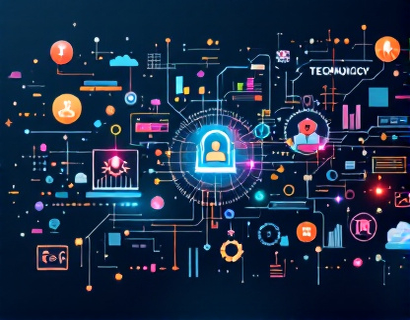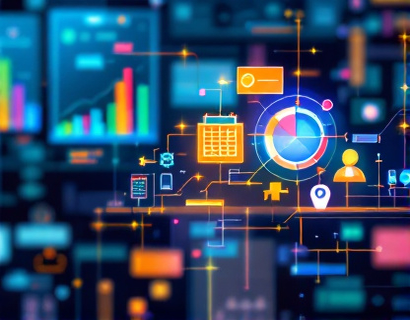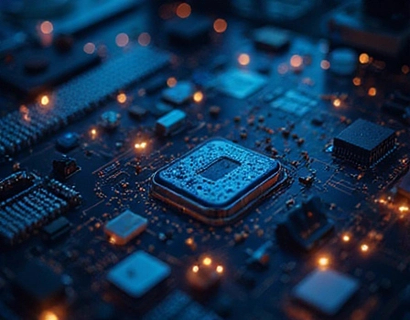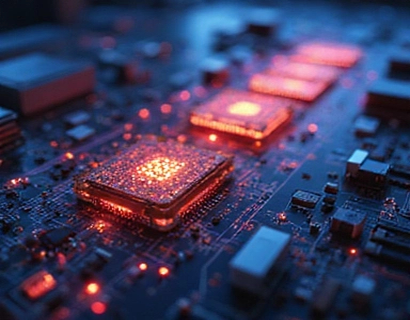Decentralized Innovation: Transforming Digital Experiences with AI and Crypto
The digital landscape is undergoing a seismic shift, driven by the convergence of two groundbreaking technologies: artificial intelligence (AI) and cryptocurrency. This fusion is not merely a trend; it represents a fundamental transformation in how we interact with digital services and applications. As we delve into the realm of decentralized innovation, we will explore how AI and crypto are redefining digital experiences, enhancing user engagement, and paving the way for a new era of decentralized applications (dApps) and services.
The Rise of Decentralization
Decentralization has emerged as a powerful paradigm in the digital world, challenging traditional centralized models. In a decentralized system, control is distributed across a network rather than being concentrated in a single entity. This shift is particularly evident in the realms of finance, data storage, and application development. The rise of blockchain technology has been a catalyst for this transformation, enabling secure, transparent, and tamper-proof transactions without the need for intermediaries.
Cryptocurrency, as a digital asset built on blockchain technology, has played a pivotal role in this decentralization movement. It empowers users to transact directly with one another, eliminating the need for banks and other financial institutions. This not only reduces costs but also enhances privacy and security. As more individuals and businesses recognize the benefits of decentralized systems, the demand for innovative solutions that leverage these technologies continues to grow.
Artificial Intelligence: The Brain Behind Decentralized Solutions
While decentralization provides the framework, artificial intelligence serves as the brain that drives innovation within this ecosystem. AI technologies, including machine learning, natural language processing, and computer vision, are being integrated into decentralized applications to enhance their functionality and user experience. By harnessing the power of AI, developers can create smarter, more responsive applications that adapt to user needs and preferences.
For instance, AI algorithms can analyze vast amounts of data generated by users interacting with decentralized applications. This data can be used to personalize experiences, recommend services, and optimize performance. Additionally, AI can enhance security measures by identifying and mitigating potential threats in real-time, ensuring that decentralized systems remain robust and trustworthy.
Innovative Decentralized Applications and Services
The combination of AI and cryptocurrency has led to the emergence of a new wave of decentralized applications and services that are transforming digital experiences. Here are some notable examples:
Decentralized Finance (DeFi)
DeFi platforms leverage blockchain technology to offer financial services without intermediaries. Users can lend, borrow, and trade assets directly on these platforms, often with the help of AI algorithms that optimize trading strategies and risk management. This democratization of finance empowers individuals to take control of their financial futures.
Decentralized Identity Solutions
With growing concerns about data privacy and security, decentralized identity solutions are gaining traction. These systems allow users to manage their identities without relying on centralized authorities. AI can enhance these solutions by verifying identities through biometric data and behavioral analysis, ensuring secure and seamless access to services.
Smart Contracts
Smart contracts are self-executing contracts with the terms of the agreement directly written into code. They operate on blockchain networks and can automate various processes, reducing the need for intermediaries. AI can enhance smart contracts by enabling them to learn from past transactions and adapt to changing conditions, making them more efficient and reliable.
Decentralized Marketplaces
Decentralized marketplaces allow users to buy and sell goods and services directly with one another, often using cryptocurrency as the medium of exchange. AI can improve these platforms by providing personalized recommendations, optimizing pricing strategies, and enhancing user engagement through targeted marketing.
Enhancing User Engagement through AI and Crypto
User engagement is a critical factor in the success of any digital application or service. The integration of AI and cryptocurrency can significantly enhance user engagement in several ways:
Personalization
AI algorithms can analyze user behavior and preferences to deliver personalized experiences. By tailoring content, recommendations, and services to individual users, decentralized applications can foster deeper connections and increase user satisfaction.
Incentivization
Cryptocurrency can be used to incentivize user participation and engagement within decentralized applications. Users can earn tokens for contributing to the platform, such as providing feedback, creating content, or participating in governance. This creates a sense of ownership and encourages active involvement.
Gamification
Incorporating gamification elements into decentralized applications can enhance user engagement by making interactions more enjoyable and rewarding. AI can help design personalized gamified experiences that resonate with users, driving them to explore and utilize the platform more frequently.
Community Building
Decentralized applications often thrive on community involvement. AI can facilitate community building by analyzing user interactions and preferences, enabling developers to create features that foster collaboration and connection among users.
The Future of Digital Interactions
As we look to the future, the potential for decentralized innovation powered by AI and cryptocurrency is immense. The digital landscape will continue to evolve, driven by advancements in technology and changing user expectations. Here are some key trends to watch:
Increased Adoption of Decentralized Solutions
As more individuals and businesses recognize the benefits of decentralized applications, we can expect a surge in adoption. This will lead to the development of a wider range of services and applications that cater to diverse needs, from finance to healthcare to entertainment.
Interoperability Between Platforms
The future of decentralized applications will likely involve greater interoperability between different platforms and networks. This will enable users to seamlessly interact with multiple services, enhancing the overall user experience and driving engagement.
Enhanced Security and Privacy
As concerns about data privacy and security continue to grow, decentralized solutions will prioritize these aspects. AI will play a crucial role in identifying vulnerabilities and implementing robust security measures, ensuring that users can trust the platforms they engage with.
AI-Driven Decision Making
AI will increasingly be used to inform decision-making processes within decentralized applications. By analyzing user data and market trends, AI can provide valuable insights that help developers optimize their offerings and enhance user experiences.
Challenges and Considerations
While the potential for decentralized innovation is vast, there are also challenges and considerations that must be addressed:
Regulatory Hurdles
The regulatory landscape surrounding cryptocurrency and decentralized applications is still evolving. Developers must navigate complex regulations to ensure compliance while fostering innovation.
Scalability Issues
As decentralized applications gain popularity, scalability becomes a critical concern. Developers must find ways to ensure that their applications can handle increased user demand without compromising performance.
User Education
Many users are still unfamiliar with cryptocurrency and decentralized technologies. Educating users about the benefits and functionalities of these solutions is essential for driving adoption and engagement.
Security Risks
While decentralized systems offer enhanced security, they are not immune to risks. Developers must implement robust security measures to protect user data and assets from potential threats.
Conclusion
The fusion of artificial intelligence and cryptocurrency is ushering in a new era of decentralized innovation that has the potential to transform digital experiences. By harnessing the power of these technologies, developers can create innovative applications and services that redefine user engagement and interaction. As we move forward, the continued evolution of decentralized solutions will shape the future of the digital landscape, offering exciting opportunities for tech enthusiasts, early adopters, and digital innovators alike. Embracing this transformation will be key to unlocking the full potential of decentralized applications and AI-driven innovations, ultimately leading to a more connected, efficient, and user-centric digital world.











































